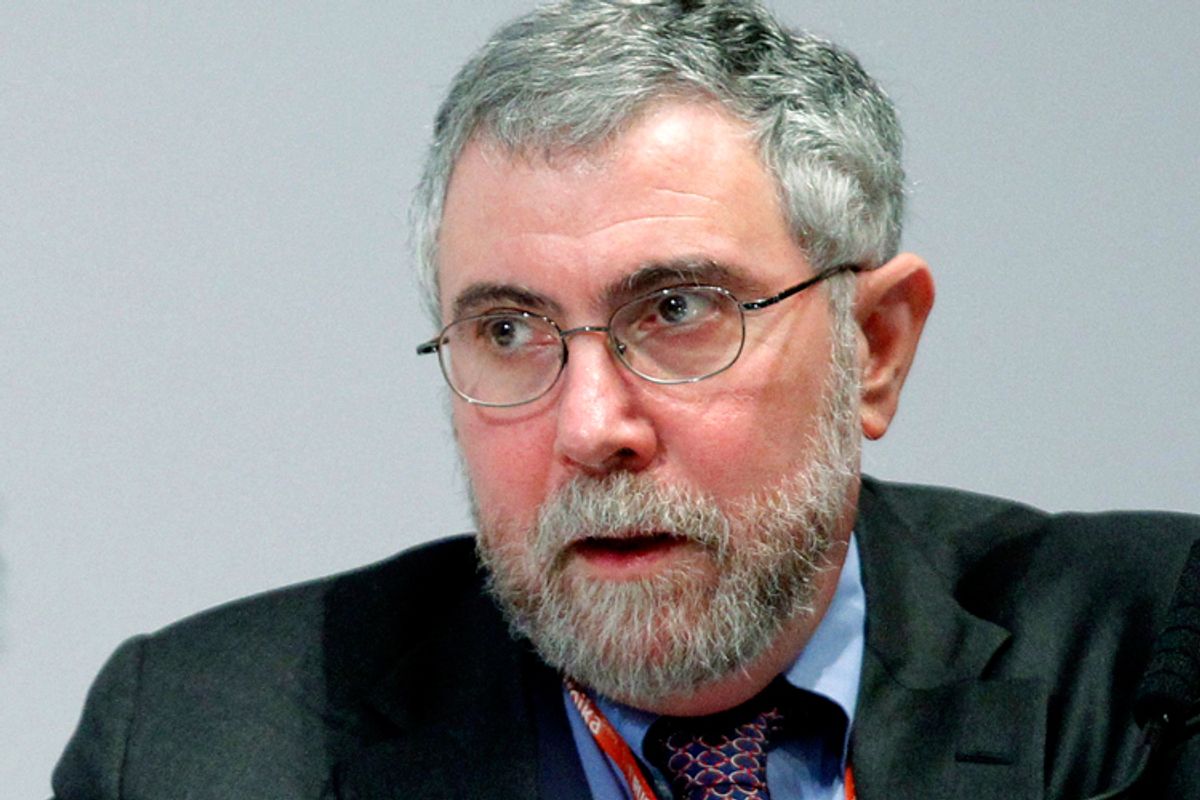In his latest column for the New York Times, celebrated economist and highly influential liberal pundit Paul Krugman argues that, despite all the trouble born from austerity and the euro, many economies in Europe are doing better at job creation than the United States, contradicting right-wing economic dogma in the process.
"Europe’s financial and macroeconomic woes have overshadowed its remarkable, unheralded longer-term success in an area in which it used to lag: job creation," Krugman writes. "What? You haven’t heard about that? Well, that’s not too surprising," he continues.
"European economies, France in particular, get very bad press in America," Krugman explains, blaming America's obsession with "reverse Robin-Hoodism"(aka trickle-down policies) for the disconnect. "But on the core issue of providing jobs for people who really should be working," Krugman writes, "old Europe is beating us hands down despite social benefits and regulations that, according to free-market ideologues, should be hugely job-destroying."
The lesson, Krugman argues, is that "macroeconomics ... isn't a morality play" and that we cannot assume that right-wing economic dogma about sacrifice and responsibility and handouts is a real prescription for how to design a widely prosperous and growing economy. When it comes to economics, Krugman claims, ours is not a world where "virtue is always rewarded and vice always punished."
On the contrary, severe financial crises and depressions can happen to economies that are fundamentally very strong, like the United States in 1929. The policy mistakes that created the euro crisis — mainly creating a unified currency without the kind of banking and fiscal union that a single currency demands — basically had nothing to do with the welfare state, one way or another.
The truth is that European-style welfare states have proved more resilient, more successful at job creation, than is allowed for in America’s prevailing economic philosophy.



Shares